If you’ve come into contact with a cookbook lover (hello, friend), you’re bound to have heard 1 or 2 confessing to reading cookbooks from cover to cover, like a novel. I am someone who regularly sleeps next to piles of books and in amongst the piles are cookbooks. I take them to bed because that’s where I think about what I’m going to cook, when, and for whom. I think about the times I’ve been invited, along with my family and business partners, to cater for an event. We write lists, weeks in advance, of what we think would suit the occasion or theme. I read cookbooks for ideas and practical reasons like what will I make with the head of cauliflower I picked up at the green grocers? What do I do with this leftover mashed potato? Just kidding, leftover potato, in any form, does not exist in my house.
Beyond menu and meal planning though, is the genre of domestic writing. The genre I most love about food writing and look out for when browsing my local bookstore. They’re the types of books I seek out when I’m away from home amongst unfamiliar shelves, the type of thing I scour secondhand stores for. I’m a bit snobby if a store doesn’t carry the genre which I find weird (me), rude even (also me).
Up until recently, I’ve never had a way to describe this genre of writing except to casually wave my hand and say something like, ‘I want to be a fly on the wall in Nigel Slater’s house when he wakes in the morning and sits at his desk with his first cup of coffee’, nor had the words to properly explain why I have two copies of Ella Risbridger’s Midnight Chicken – and carry the paperback version with me more often than not (it’s a comfort thing?). I want to be reminded of what she thinks of when she sits in the kitchen on the weekend (bread), or how she regularly makes magic from pantry items. I enjoy the company of her words.
It wasn’t until Alicia Kennedy’s piece on Domestic Writing that I had the words to describe this genre, this fascination, nay, veneration of the everyday, of the mundane, of how essential it feels to me. It is also the way I most enjoy expressing myself in my own food writing practice. Perhaps why I shy away from restaurant write ups and the like.
Let it be clear that I am not a critic, nor feel suitably equipped to give any critique to any food establishment, except “10/10, would recommend” or more recently, “yeah, that’s f*$%ed up good”. Perhaps it’s because cooking can, beyond the chef worship and restaurant centricity, be seen and feel like a thankless task, especially when a ding dong can come along and give you a shitty review because they didn’t like the hand soap in the bathroom.
Anyway, I digress.
Why I love domestic writing, as brought to you by Alicia Kennedy:
“I don’t actually want to be a recipe developer; I want to talk about how I cook. I care more about the domestic chronicles of the food bloggers and the essays of folks like Laurie Colwin and the books of Nigel Slater. I don’t want someone to tell me how to create a flavor bomb, someone inspired by restaurant cooking: I want to know how you’re feeding your family on a random Monday, how you’re creating a holiday feast. I want the domestic.”
I think this paragraph also encapsulates how strongly I feel for this type of writing too:
“Domestic writing is different from the food media concerns with restaurants and chefs. It is writing where we talk about the brilliance of steaming and boiling as cooking techniques, so often forgotten (so often we forget). It is writing where we talk about what we cook when we don’t feel like it; the differences between cooking for close friends, the people you’ll let into the kitchen, and cooking for acquaintances; the hangover meals; the tasks a child can complete; the salad dressings; the constantly forgotten ends of parmesan that we had the best of intentions for using up in some way or another.”
Here are some writers and books that I like very much, and feel strangely protective of (if you don’t like them, didn’t enjoy them, please don’t tell me – sorry, thank you) – in case you are also a fan / think you might be a fan / little bit interested / want something new to read.
Nigel Slater
G’day. Captain Obvious reporting for duty. I love Nigel. I want Nigel to be my best mate. I also know Nigel describes himself to be a bad friend (me too, really just no bueno with keeping in touch but I’ll love your guts), doesn’t like change (damn it), is very content with his lot in life (probs can’t fit me in). Plus they say you shouldn’t meet your heroes (I agree). Anyway, Nigel has a beautiful way of writing about his life as a cook, gardener, as an avid lover of Christmas, and does this while pulling together lovely, simple and seasonal meals. The Kitchen Diaries III was my first foray – almost accidental because I couldn’t believe the price tag for this beautiful blue linen-covered tome ($20 dollareedoos back in the day). My collection of Nigel has been growing ever since.
I really liked this interview he did about his ceramic collection too.
Ok, final bitty. Look at his desk.
Ella Risbridger
If you haven’t read Midnight Chicken yet, I urge you to seek out a copy (borrow it, just not mine), buy it – I don’t know how else to describe it, but it is essential. Essential because it will gently allow you to put aside any qualms you may have about how frivolous it feels to be a food enthusiast, to find yourself thinking about it in every spare moment. Ella makes it (food) beautiful, your hunger for it natural and a meal or morsel something to look forward to. Midnight Chicken is a balm for the soul, and makes food at any occasion, a celebration for the living. Ella also has a Substack where you can become familiar with her voice and style.
Kate Young
Kate Young’s The Little Library Cookbook and The Little Library Year were also accidental (read: emotional) purchases – but honestly, how genius to write a book and develop recipes about the food you come across in fiction. And then to follow up with a book that provides recipe and book recommendations throughout the year. All of Kate’s books are perfection, and I cannot wait for her and Ella’s recently announced book project. Gimme, gimme.
Ruby Tandoh
Generous, thoughtful and real. Three words to describe Ruby’s cooking and book, Cook As You Are. Written for all of us, regardless of how we turn up in the kitchen and what we are capable of, at any point in time. It’s perhaps the first food based text I’ve read that feels truly inclusive and accessible – that it’s been written for everybody and every body. I think if recipe writing were to lean on Ruby’s example, we’d all feel the better for it. More confident, more open to learning and experimentation, and ready to cook for ourselves when we feel able. It’s folly to believe that the more succinct a recipe, or a list of ingredients, the quicker a meal will arrive at the table.
Nigella Lawson
Cook, Eat, Repeat was, I felt, a return to what Nigella does best – write. She is a wonderful cook, and an equally wonderful and generous writer. So I was a little bit sad when people were a bit miffed that there were too many words and not enough recipes. Oh well. She loved writing it, and a lot of us loved reading it. For all you avid readers and fans of Nigella in whatever format, Cook, Eat, Repeat is a luscious read. Every essay, every headnote oozes Nigella – I read the entire book in her voice, and revisited How To Eat for dessert. Scrumptious stuff from the accidental OG queen of domesticity herself.
Tamar Adler
First published in 2011, An Everlasting Meal by Tamar Adler (new-to-me author and book) is already in the ‘pry out of my dead hands’ category. The book appeared in several Instagram stories recently, with people singing its praises for changing the way they cook and approach food – the sudden proliferation perhaps linked to the impending release of An Everlasting Meal Cookbook. “Cooking with Economy and Grace” is how I want to be cooking right now as I stare down the [reality] barrel of million dollar mortgages and a bag of groceries whose costs feels slightly too inflated and not entirely full. Tamar makes me feel smart and economically savvy in the kitchen.
More lovely reads
Anything by Diana Henry (I came close to weeping when I read that a hobby of hers back in the day was to dream up menus - how joyous)
An Omelette and a Glass of Wine by Elizabeth David
The Classic Italian Cookbook by Marcella Hazan (cop my recently acquired secondhand copy that is printed on super thick luxe paper and whose spine immediately started disintegrating after receiving an ounce of attention since 1992, probably)
Ostro by Julia Busuttil Nishimura (carried this around for 6 months in 2017 like a lost puppy)
Small Fires by Rebecca May Johnson
Sonya Gee’s monthly roundup of all the internet recipes she’s made and enjoyed
Something to Eat and Something to Read (podcast and newsletter) by Sophie Hansen and Germaine Leece
You made it! If you feel like I’ve missed something essential, please let me know. I may have a book problem (says long suffering partner who doubles as an enabler), but can always find a spot on the shelf for one more.
Until next time, wishing you many snacks and lots of sunshine.





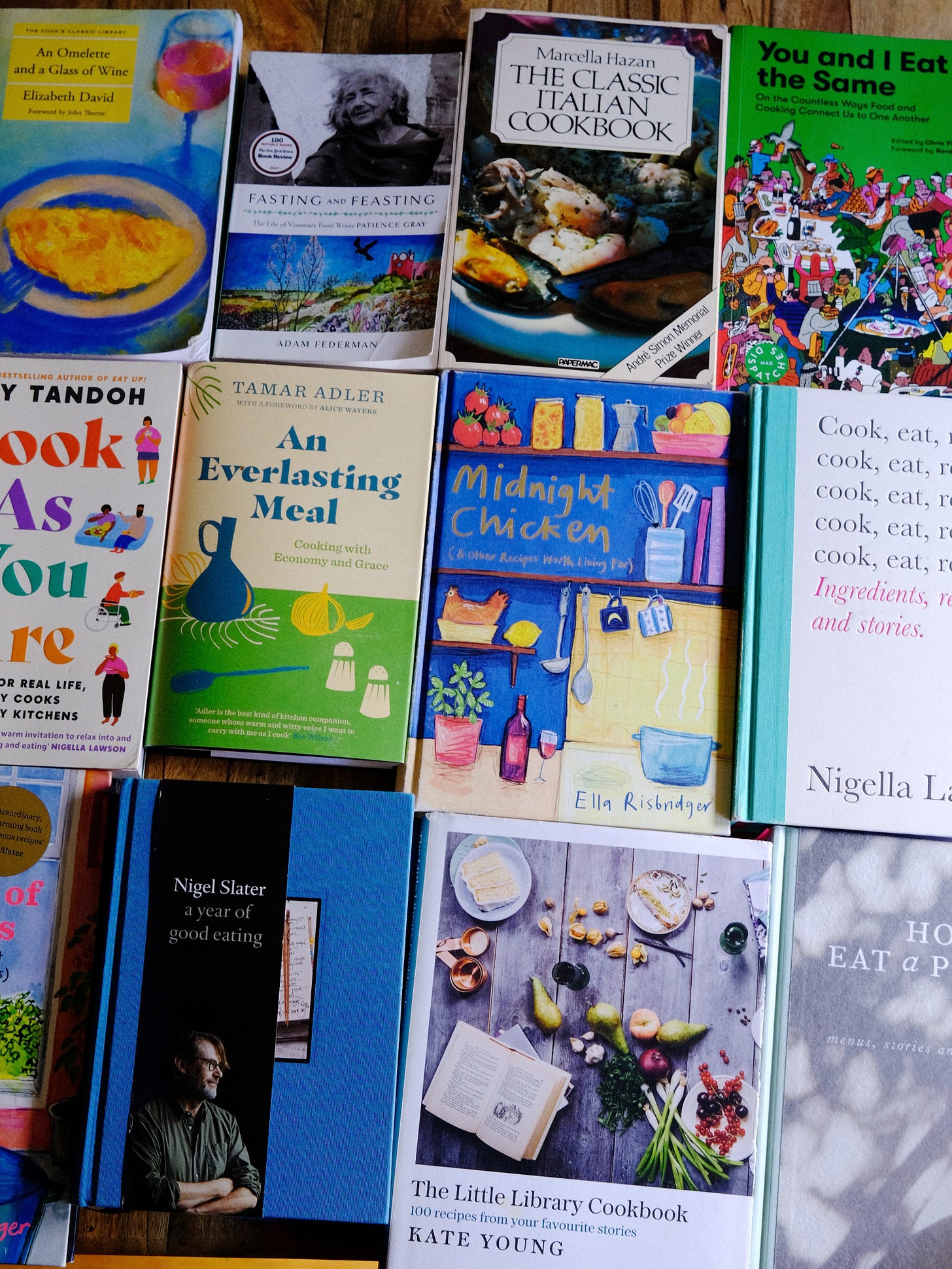

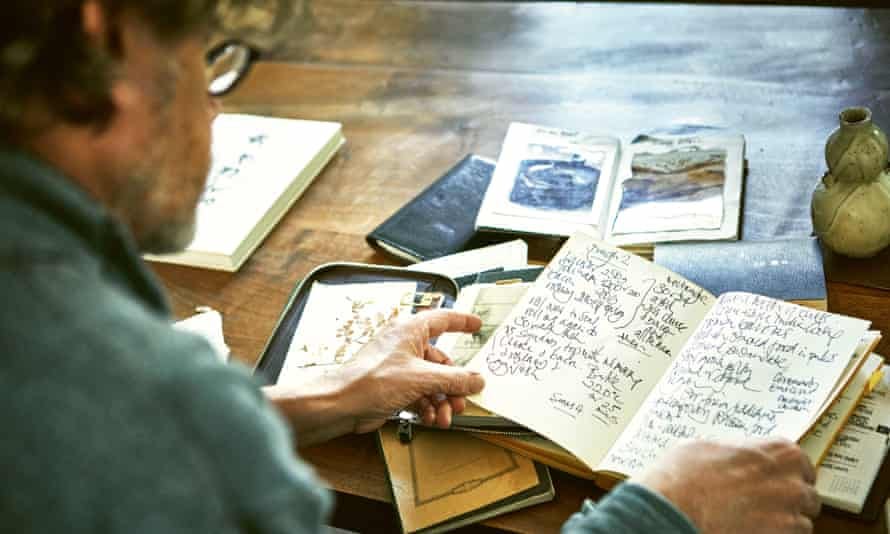

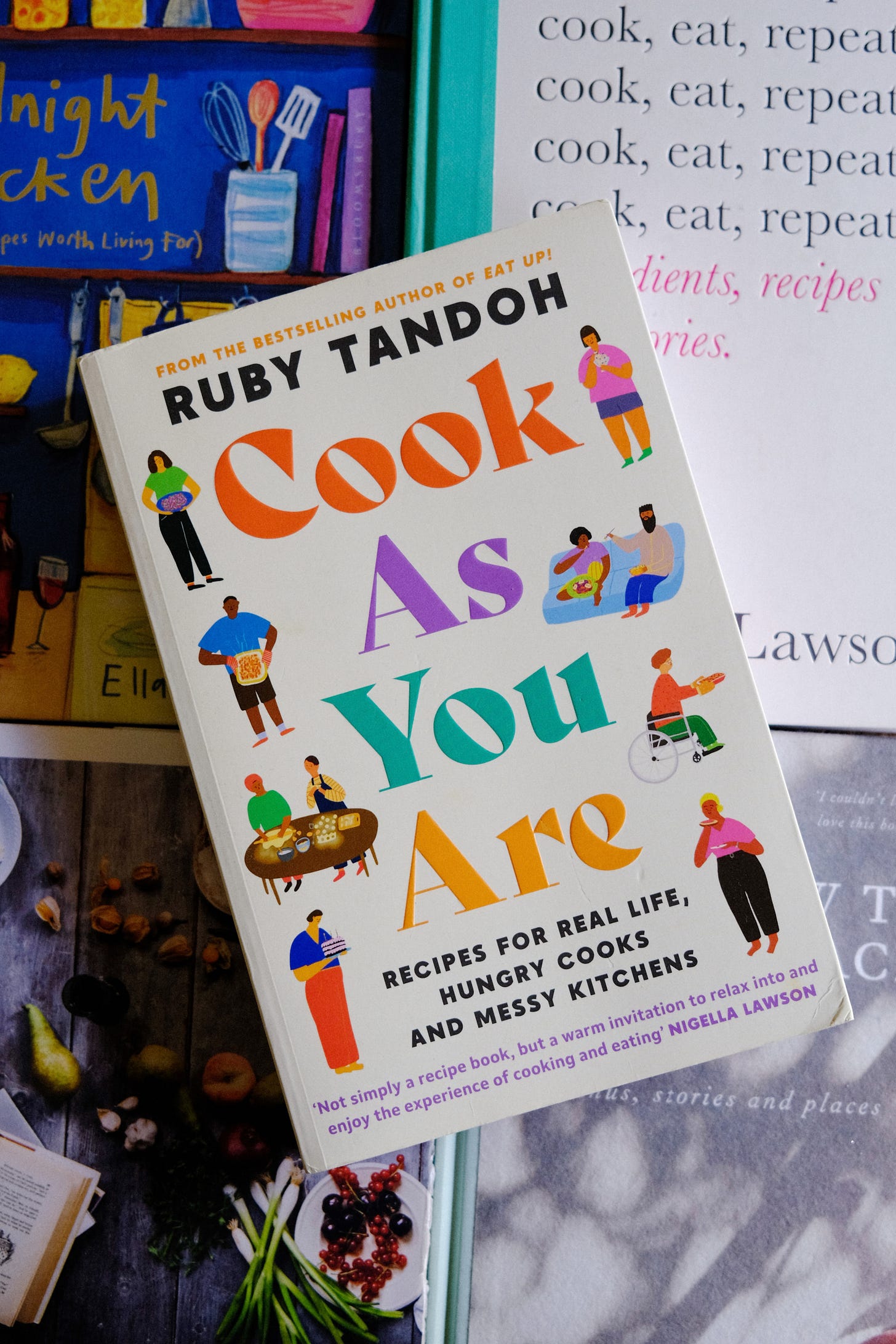
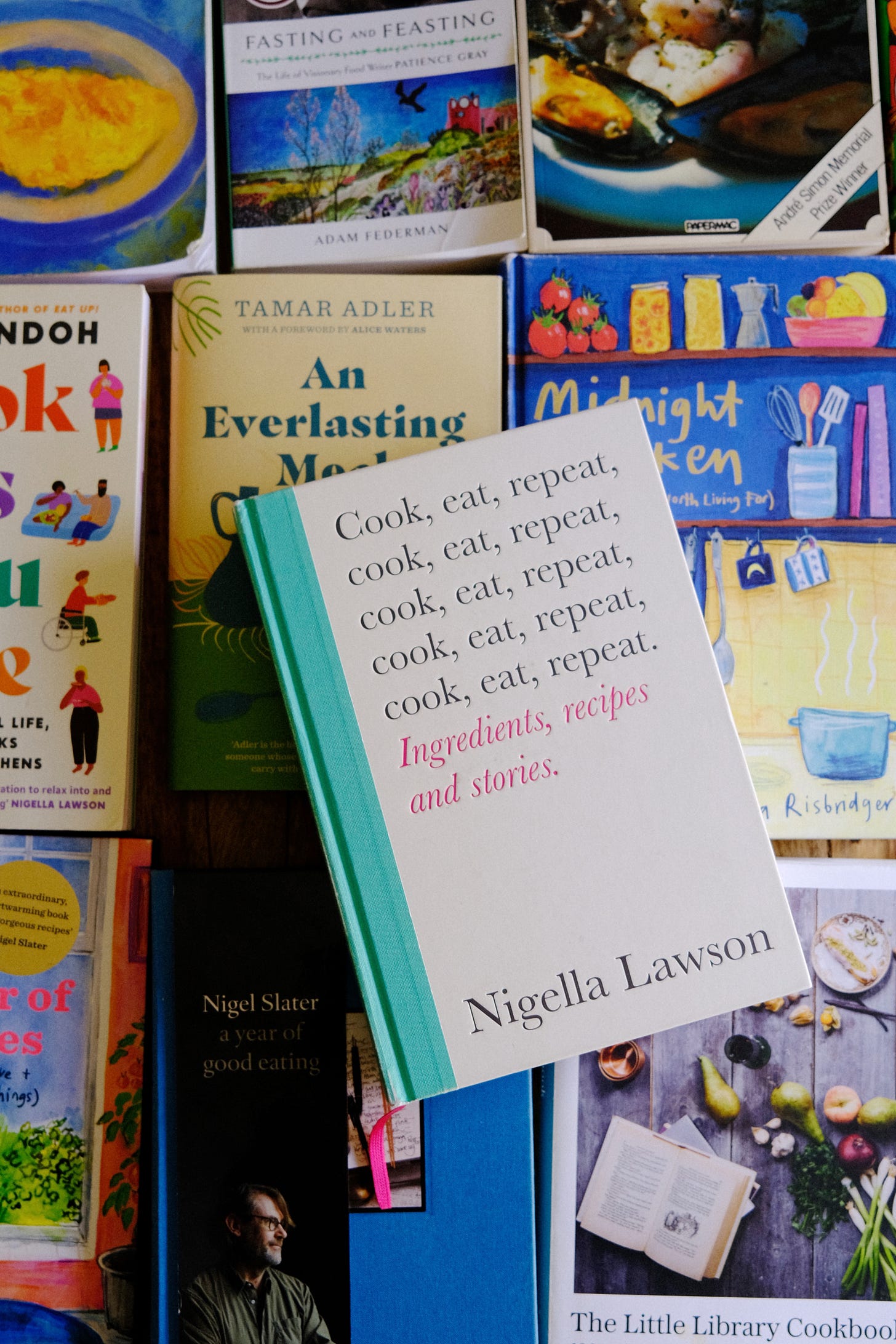
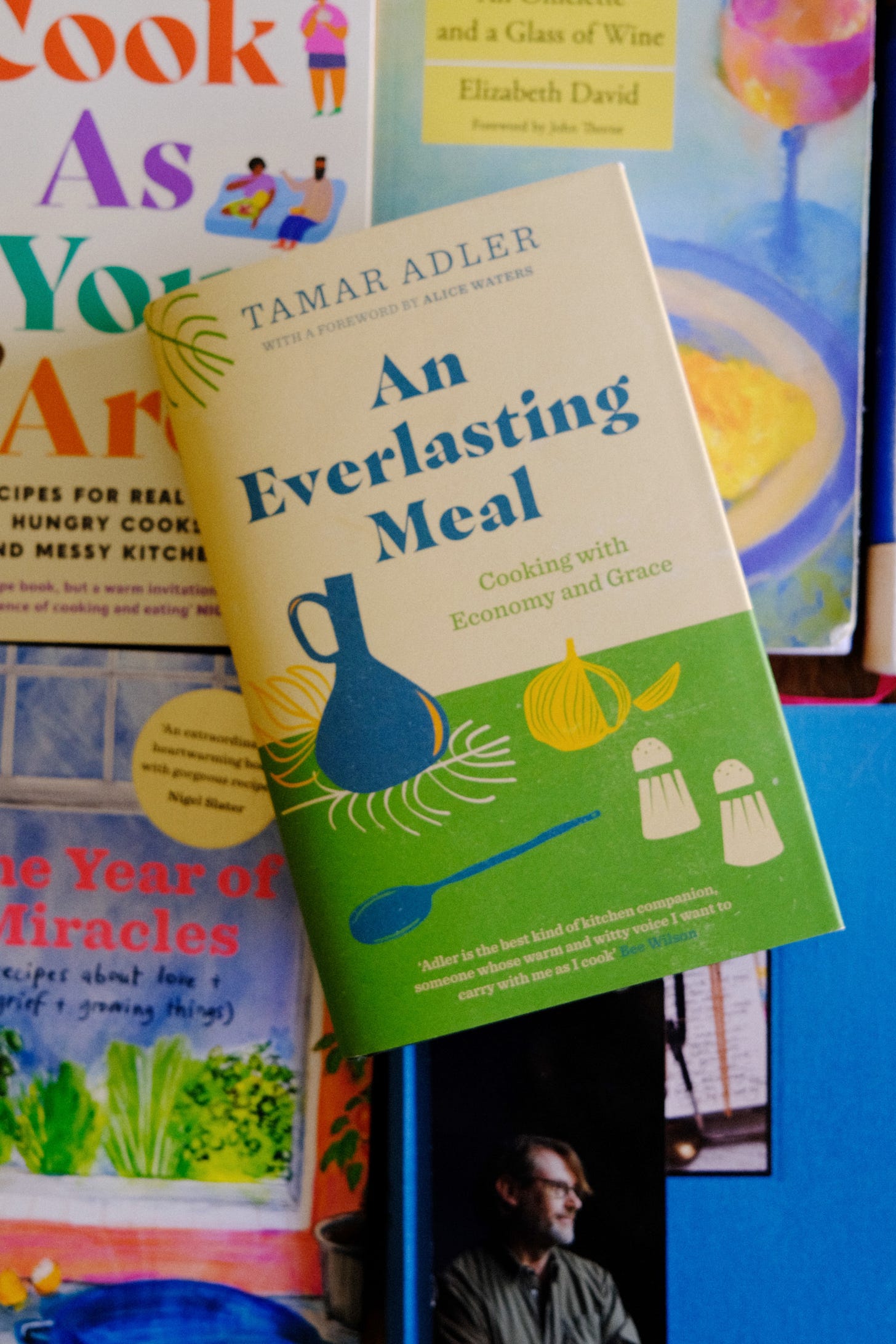
Loved this so much! I also have two copies of Midnight Chicken, in the end the beautiful illustrations were too much to resist once I saw how beautiful Ella’s second book was. And I don’t think there’s ever such a thing as having a ‘book problem’, things that can bring so much joy and comfort could never be a problem (surely!?) - maybe only to people who just don’t ‘get it’?! But we all have hobbies/interests that some will never ‘get’, book related or otherwise.
What a joy this was to read, Diem. I adore Ella’s books and something tells me I need to find Ruby’s book as this is now the second time I have read about it in a matter of moments. And I really must indulge in a Nigel Slater book. Thank you for sharing. ☺️